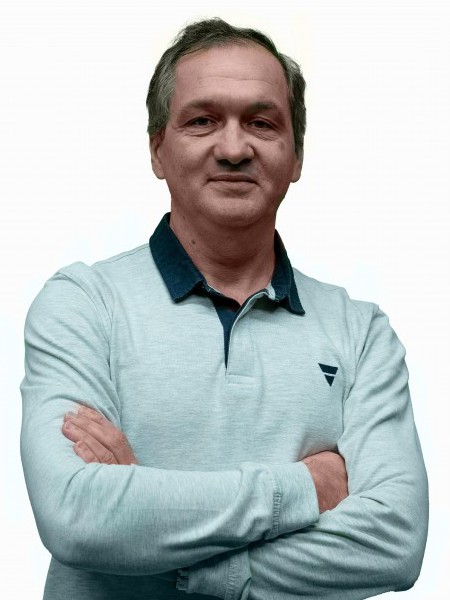resumo
In a view of the research interest in the high-permittivity materials, continuous enhancement of the dielectric permittivity epsilon ' with Zn content was reported for conventionally prepared Sr1-xZnxTiO3 ceramics with x up to 0.009, limited by the solubility of Zn on Sr site. Here, we use a sol-gel technique and a relatively low annealing temperature of 750 degrees C to prepare monophasic Sr1-xZnxTiO3 thin films with higher x of 0.01, 0.05, and 0.10 on Pt/TiO2/SiO2/Si substrates. The incorporation of Zn on the Sr site is confirmed by the decrease of the lattice parameter, while the presence of Zn in the films is proven by energy dispersive spectroscopy. The film thickness is found to be similar to 330 nm by scanning electron microscopy, while the average grain size of 86-145 nm and roughness of 0.88-2.58 nm are defined using atomic force microscopy. epsilon ' measured on the films down to 10 K shows a decreasing trend with Zn content in contrast to that for weakly doped Sr1-xZnxTiO3 ceramics. At the same time, the temperature dependence of the dissipation factor tan delta reveals a peak, which intensity and temperature increase with Zn content.
palavras-chave
PHASE-TRANSITIONS; SRTIO3; FERROELECTRICITY; PERMITTIVITY; TUNABILITY; BEHAVIOR
categoria
Materials Science; Physics
autores
Okhay, O; Vilarinho, PM; Tkach, A
nossos autores
Projectos
CICECO - Aveiro Institute of Materials (UIDB/50011/2020)
CICECO - Aveiro Institute of Materials (UIDP/50011/2020)
Associated Laboratory CICECO-Aveiro Institute of Materials (LA/P/0006/2020)
agradecimentos
This work was supported by national funds, through FCT (Fundacao para a Ciencia e a Tecnologia) in the scope of the framework contract foreseen in numbers 4, 5, and 6 of article 23 of the Decree Law 57/2016, of 29 August, UIDB/00481/2020 and UIDP/00481/2020; and CENTRO-01-0145- FEDER-022083-Centro Portugal Regional Operational Programme (Centro2020), under the PORTUGAL 2020 Partnership Agreement, through the European Regional Development Fund and developed within the scope of the project CICECO-Aveiro Institute of Materials, UIDB/50011/2020, UIDP/50011/2020 & LA/P/0006/2020, financed by national funds through the FCT/MEC (PIDDAC) as well as within FCT independent researcher grant 2021.02284.CEECIND and FLEXIDEVICE project PTDC/CTMCTM/29671/2017.




